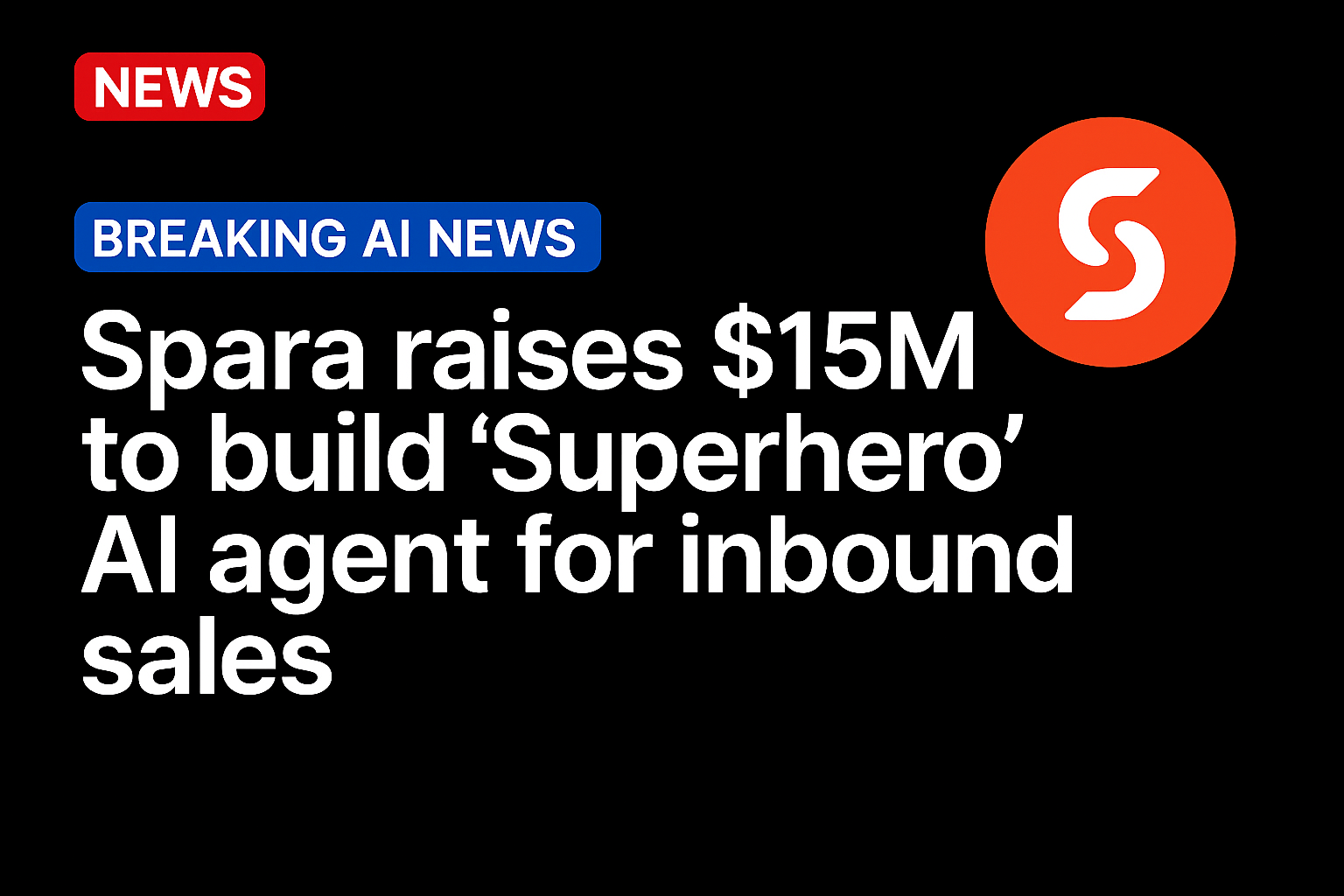Is the B2B sales world ready for AI-powered platforms that act less like pieces of software and more like tireless, always-on members of the sales team?
It might be.
Artificial intelligence (AI) is writing a new thesis for the near future of B2B commerce. Buyers want to self-educate quickly, on their own terms, without being forced into a slow, generic funnel. Sellers want to spend more time closing, less time sorting.
AI, as PYMNTS CEO Karen Webster put it, is quickly becoming the center of gravity for sales optimization and offers “an efficient way to organize the inbound sales funnel.”
She hosted a conversation with David Walker and Zander Pease, co-founders of Spara, to discuss why they just raised $15 million to build and scale a “superhero” AI agent that listens to what prospects actually ask, answers well, and moves everyone to the next right step.
Advertisement: Scroll to Continue
“Outbound is still a thing,” Pease said, “but we personally just feel that AI has the most room to improve the go-to-market motion on the inbound side.”
After all, once a prospective buyer signals interest, AI can change the economics of selling.
And if Spara’s founders are right, it’s also a preview of a world where companies, as Walker explained, host “a thousand times as many one-to-one personalized conversations,” than they did just a year ago.
https://players.brightcove.net/6415959430001/ScdtaQRMq_default/index.html?videoId=6382188005112
Rewiring the First Conversation
Modern B2B evaluations often start with a buyer scanning 10 vendors that each claim to do a hundred things. The purchase, however, hinges on the one or two jobs that matter most to that buyer.
Per its founders, Spara’s first-principles insight was that the crucial inflection point in many sales funnels lies between marketing and sales, a gray zone where promising prospects can fall through the cracks or unqualified leads can waste precious sales reps’ time.
The platform is designed to close that gap with a first-principles bet that rests on first-party intent data that is distinct from the demographic or firmographic filters that have long dominated B2B qualification. It’s not just whether the prospect is from a company of 500 employees in a certain industry, but whether they care about SOC 2, a specific workflow, or ROI on a particular KPI.
“Prospects will tell you what they’re looking for through the questions they ask. … We’re front-loading that so companies can optimize their resources and prepare their humans to be better at closing,” Walker explained.
Rather than filling out long forms or waiting days for a discovery call, prospects can engage Spara’s AI agents instantly. If needed, these agents can share media assets like videos, diagrams or product sheets to answer the buyer’s most pressing questions.
The company’s product architecture also reflects the evolving comfort level buyers have with AI-driven interactions. While chat remains the dominant mode, voice engagement is growing as tech platforms work to normalize spoken AI interactions.
“We see the market adjusting as more people use ChatGPT’s voice mode versus just typing, for example. You can talk a lot faster than you can type,” Walker said.
Rather than presenting itself as a CRM competitor, Spara positions its own platform as a sales team extension, integrating with existing tools like Salesforce and HubSpot. This approach enables companies to maintain established workflows while rethinking how they triage leads.
Unlocking a Data Goldmine
The implications of AI enablement go beyond sales. By capturing every question prospects ask during early interactions, AI sales platforms can also generate a new feedback loop for marketing teams.
“Instead of saying this lead was good or bad, we can say this lead’s actually asking about questions that are not relevant to the product. … We can also surface areas for opportunity where companies are getting a ton of questions they haven’t thought of as core marketing messages,” Spara said.
Spara’s pitch resonates with a broader trend in B2B commerce: the shift toward buyer-centric experiences that prioritize speed, personalization and transparency. In a world where prospects can research extensively online, the differentiator often lies in how quickly and effectively a company can respond when a buyer raises their hand.
If that vision holds, the real competitive advantage may not be in having the largest sales team or even the most compelling product, but in removing friction from the buyer’s journey — a proposition that makes Spara’s bet on inbound qualification look less like a niche play and more like a rethinking of the entire go-to-market model.
Pressed by Webster for outcomes beyond raw meeting counts, Spara’s founders pointed to a case study with business-banking platform Rho where the headline metric was throughput and the second-order effect better-prepared reps and fewer wasted cycles.
“We deployed on their website and were able to increase the number of meetings booked by 3x,” Walker said, “while making sure that those people are prequalified and that the information of what that prospect is looking for is getting to the sales rep before that first call.”
The platform’s impact extends to how sales teams themselves are structured.
“We think the future sales motion will look a little different. … The inbound triage of leads might not make a lot of sense,” Walker said. “If everyone’s spending 100% of their time on high-value work, you’re going to see companies grow much faster per human.”
Source: https://www.pymnts.com/

